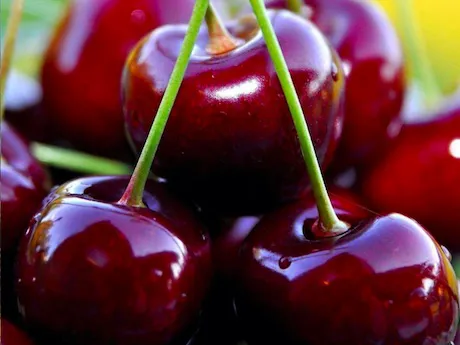 The scientists at Yuncheng University have assessed the effects of postharvest exogenous melatonin (50,100 and 150 µmol/L) on the senescence and quality of sweet cherries during storage at 0 ± 0.5 °C.
The scientists at Yuncheng University have assessed the effects of postharvest exogenous melatonin (50,100 and 150 µmol/L) on the senescence and quality of sweet cherries during storage at 0 ± 0.5 °C.
Results showed that melatonin treatment decreased decay incidence, respiration rate, and weight loss. It delayed the degradation of firmness, lightness, saturation, hue angle, titratable acidity, and total soluble solids content, thus maintaining better fruit quality.
Melatonin treatment inhibited increases in ROS, malondialdehyde content, and relative membrane permeability, while maintaining higher endogenous melatonin levels and increasing superoxide dismutase and catalase activity. Additionally, melatonin treatment enhanced the activity of antioxidant enzymes, increased the levels of ascorbic acid, and reduced glutathione levels, which are related to the ascorbate–glutathione cycle, as well as increasing the AsA:DHA and GSH:GSSG ratios.
"Delayed senescence in sweet cherries after exogenous melatonin treatment may be associated with high endogenous melatonin levels and increased antioxidant activity and content - The scientists conclude - Melatonin induces antioxidant enzymes activities and antioxidant content leading to decrease of oxidative stress".
Source: Feng Wang, Xiaoping Zhang, Qingzhen Yang, Qifeng Zhao, 'Exogenous melatonin delays postharvest fruit senescence and maintains the quality of sweet cherries',
Food Chemistry, Volume 301, 2019.
